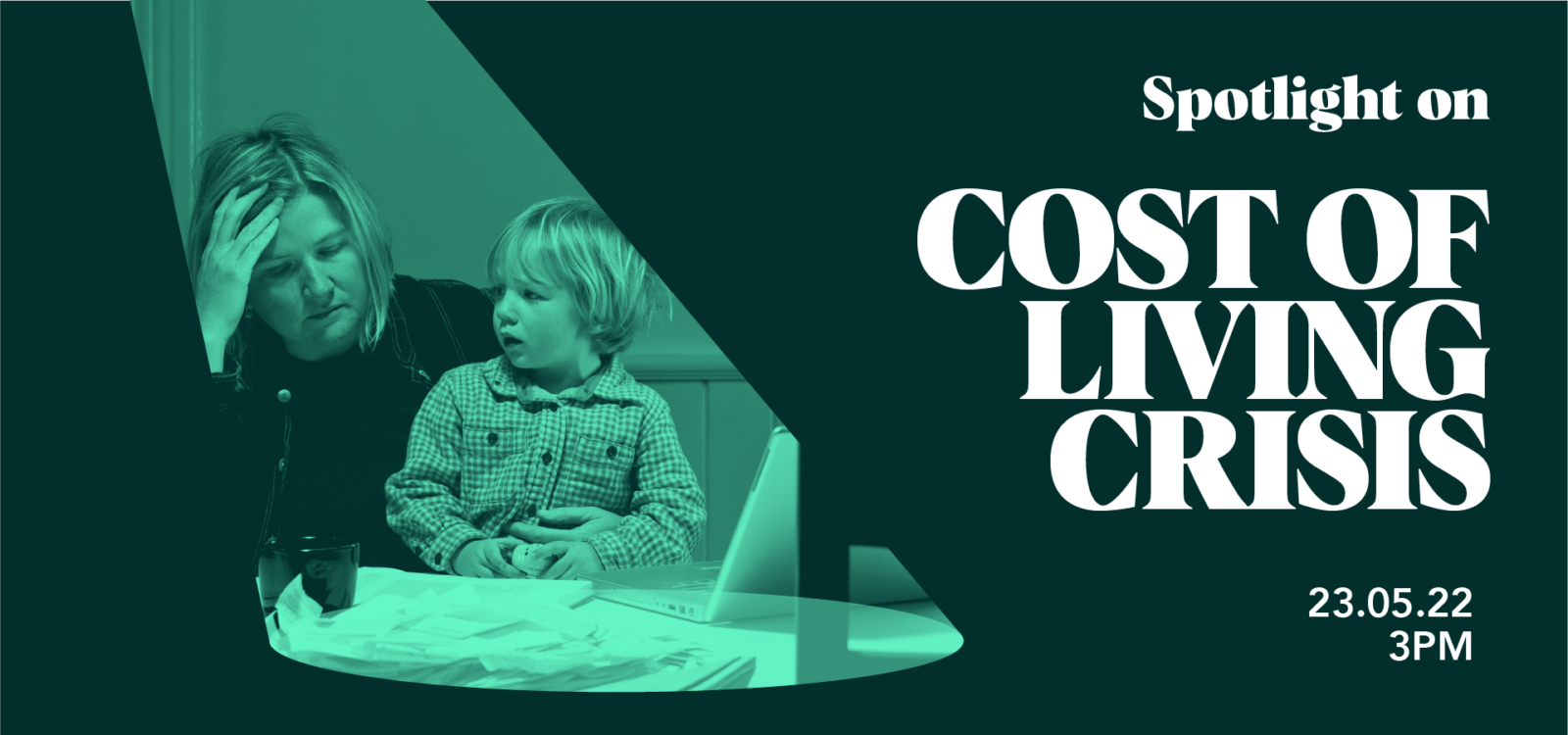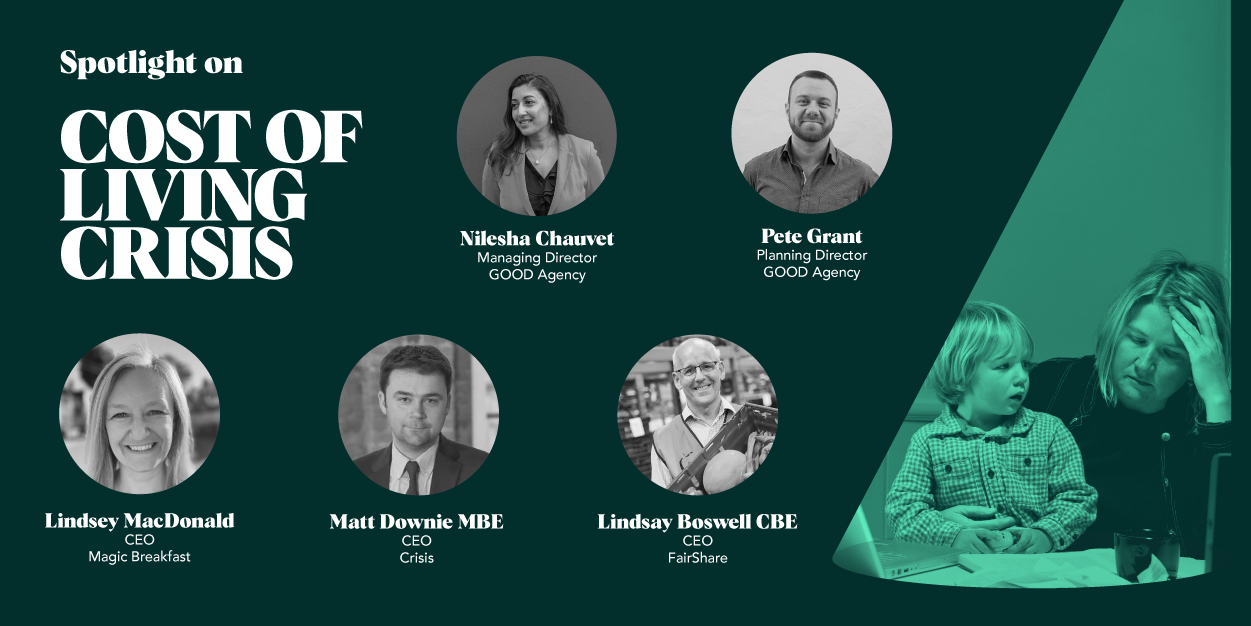
GOOD Spotlight on: Cost of Living Crisis
Spotlight is GOOD’s new event series for the third sector, examining the most pressing issues facing society today, and the impact of these issues on charities.

The first event shines a light on the cost of living crisis, and we were joined by a brilliant panel:
Lindsey MacDonald PhD, CEO of Magic Breakfast,
Matt Downie MBE, CEO of Crisis and
Lindsay Boswell CBE, CEO of FareShare.
The event was hosted and moderated by Nilesha Chauvet, Managing Director at GOOD and opens with an introduction and provocation by Pete Grant, Planning Director at GOOD.
Here are the highlights.
A collective call for honesty and humility
All three panellists shared candidly and honestly about those things keeping them awake at night, and their very real concerns about the crisis. Lindsay Boswell shares that FareShare is ‘focused but pretty terrified about the demand that is coming downstream.’ His fear concerning the mounting pressure on services and to keep up with the ‘phenomenal increase’ in demand is also echoed by Matt Downie. Downie recognises the discomfort felt by those on the front line at Crisis when they must ration support due to overwhelming demand. He states that Crisis, as an organisation, handles this by being as ‘effective as [we] can be, for the people that [do] come to us.’
Similarly, Lindsey MacDonald shares that her key learning, emerging from a global pandemic into a cost of living crisis, is that organisations need to be clear about why they exist. Concerning Magic Breakfast, she states, ‘we need to have that clarity of purpose alongside a good amount of humility.’ She speaks collectively to the sector about the need for openness to collaboration. MacDonald’s view that if all organisations take a moment to pause and evaluate with humility, the sector can move forward, and this safeguards services, provision, and support for those who need it most.
An urgent need for unity
Downie argues that the sector is at serious risk if ‘we don’t get our lines straight and hammer out our policies to present to government.’ All three panellists agree that it is critical to unite as one voice, and to elevate a cohesive narrative to government to influence and to unlock financial support. MacDonald states that to achieve results, we need to better co-ordinate efforts. All three panellists agree that this is difficult to achieve when there is a tendency to pitch organisations against one another. Downie suggests we should avoid allowing ‘competition between charities [to] do us down in terms of the bigger picture.’ Boswell calls upon umbrella bodies to ‘step up’ and provide more leadership. He states they could be the ones to bring different organisations together to help drive real change.
‘Everyone’s a fundraiser’
‘I am absolutely a fundraiser. The more everyone recognises the importance of that the better,’ states Boswell. The importance of keeping fundraising front of mind is a red thread running throughout the conversation. Downie comments that he’s unashamed to say ‘fundraising is the number one priority at the moment’ for Crisis. Our panellists agree that now is not the time to remove investment into fundraising, even though there are great financial burdens upon donors and we’re all competing for a share of a smaller wallet. Instead, the strategy is about making sure the ask is the right one: asked in the right way and at the right time. MacDonald goes further and states that it’s also about asking with compassion. At Magic Breakfast they have seen the average donation halve but the number of people giving is double. This, she states, proves that generosity is still prevalent. People still care, so organisations need to understand it’s just about showing some empathy that supporters are going through a difficult time. She offers a timely reminder that this means charities should hold themselves to account concerning how they spend donations. Transparency is key now, more than ever before.


